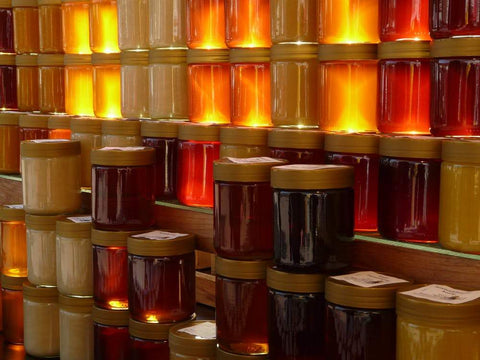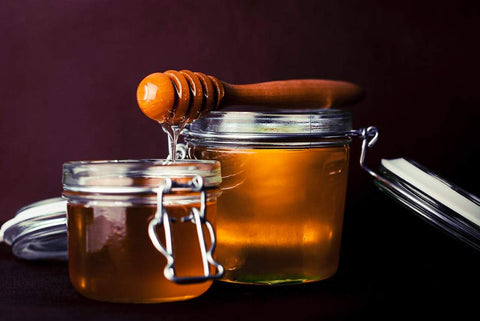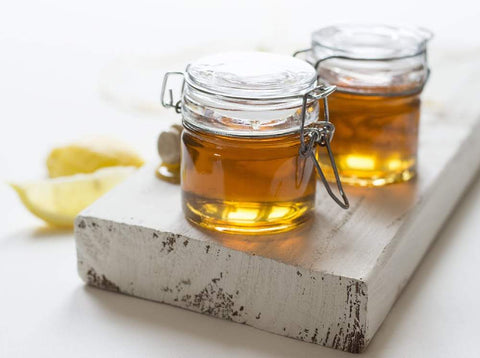Not all honey is created equal. Or, more accurately, not all honey on the grocery store shelves is equal. Some international honey has been treated and no longer has the health benefits discussed here.
If you can possibly buy from a local farmer, farmer’s market, or a reputable local company, it really is the healthiest choice.
Honey and Baking
- You should never refrigerate honey. Tis will make the honey crystallize faster.
- Slightly warmed honey is easier to measure out and mix.
- One 12-ounce honey bear is equal to one cup.
- Honey never spoils.While excavating Egypt’s famous pyramids, archaeologists have found pots of honey in an ancient tomb. The honey, dating back approximately 3,000 years, is the world’s oldest sample and was still perfectly edible. If it crystallizes or becomes granular, place the open container in a bowl of hot water until it liquifies again. You can get more information on how to decrystalize honey here: http://health-benefits-of-raw-honey.blogspot.com/2017/07/how-to-decrystallize-honey-its-mid.html?spref=fb.
- To replace sugar with honey in a recipe, substitute 1/2 to 2/3 cup of honey per cup of sugar, and decrease the amount of liquids by 1/4 cup per cup of honey used. Stir the mixture very thoroughly. Lower the baking temperature by 25 degrees. Watch the baking time carefully since foods brown more quickly when honey is used. You can get more information on using honey in your baking here:http://health-benefits-of-raw-honey.blogspot.com/2017/07/4-rules-for-swapping-out-sugar-in-favor.html?spref=fb
Health Benefits of Honey
- Honey contains antioxidants, which help protect against cellular damage.
- Usehoney on wounds, including burns, to help them heal faster. Honey is a natural antibiotic.
- Manuka honeyis the preferred variety for first aid treatment.
- It can be used as a treatment for chapped lips!
- A good rehydration beverage combines 1/2 c. honey, 1/2 t. salt, 2 c. orange juice, and 5 1/2 c. water. Use lukewarm water to help the honey dissolve faster, then cool.
- Adding a little local honey (produced within 50 miles) to your diet may help prevent someallergies. The bees have been collecting pollen from plants in your specific area, the same pollen that is the culprit behind many allergies. Tiny doses of this pollen has the same effect as allergy shots, helping the body build immunity against pollen. (Note: filtered honey has had the pollen removed, so do not expect the same benefits from filtered honey.) You can get more information on how honey can help prevent allergies: http://health-benefits-of-raw-honey.blogspot.com/2017/07/honey-for-allergies.html?spref=fb
Odd Bits and Pieces
- Bees have been known to produce blue and green honey. This is usually a result of bees feeding on sugars that have been dyed. This most commonly has been known to happen in hives located close to M&M factories.
- It can be purchased in a crystal form. When rehydrated, it can be used as liquid honey.
- Honey should be stored in closed containers because it absorbs moisture from the air, which can cause it to ferment.
- An African bird called the Honeyguide locates and feeds on wild honey. The Honeyguide becomes very chatty when it finds a beehive, making it possible for people to retrieve honey themselves.
- Ancient Egyptians used honey as a form of money and fed it to their sacred animals.
- Honeybees are the only insect that actually produce food for humans! Just one reason to learn about beekeeping and becoming a beekeeper, or just make your backyard or garden bee-friendly. Pay back the favor!




